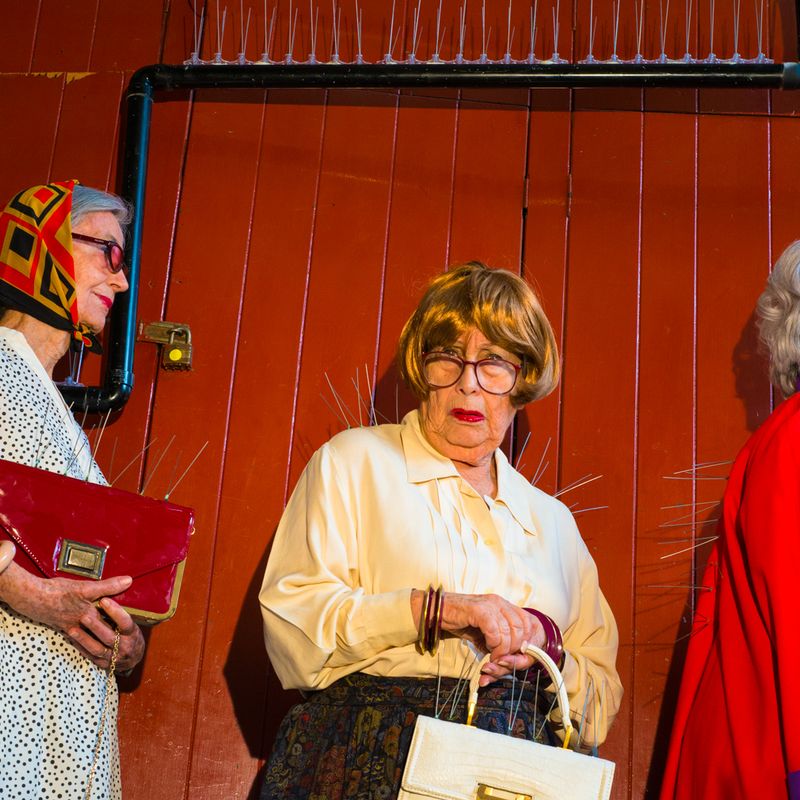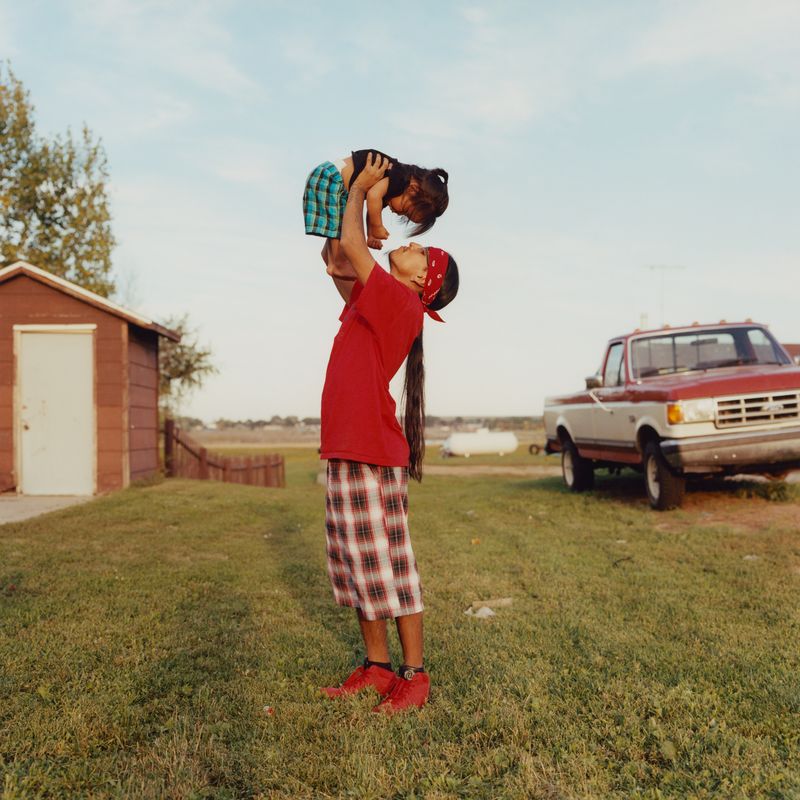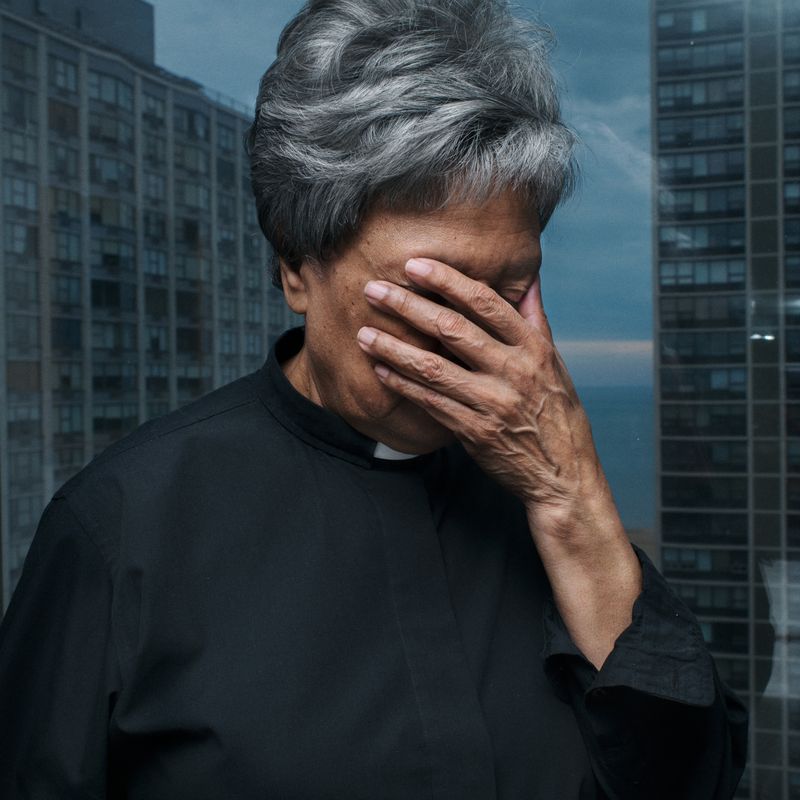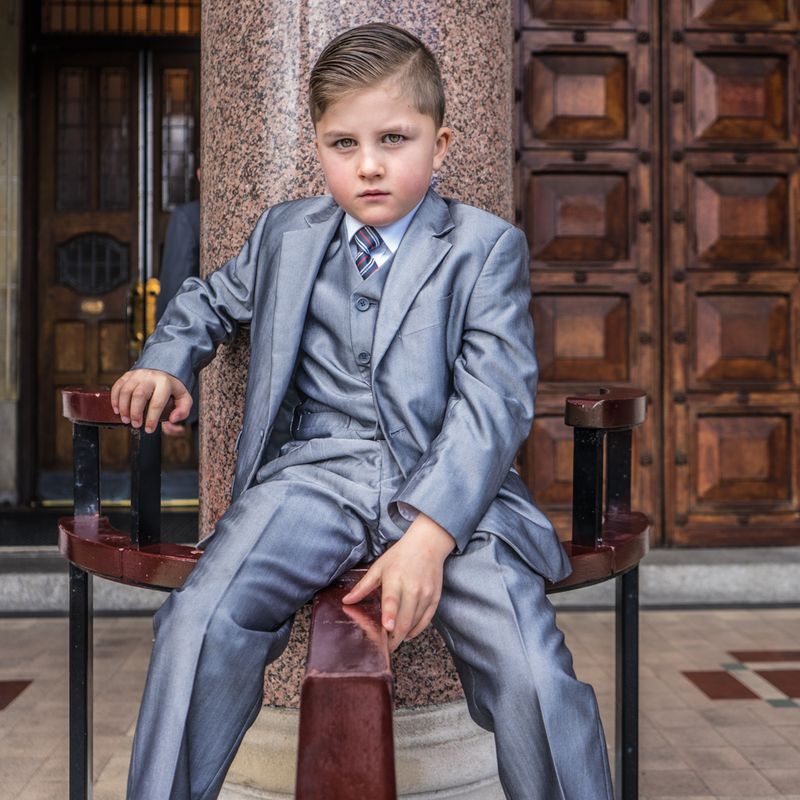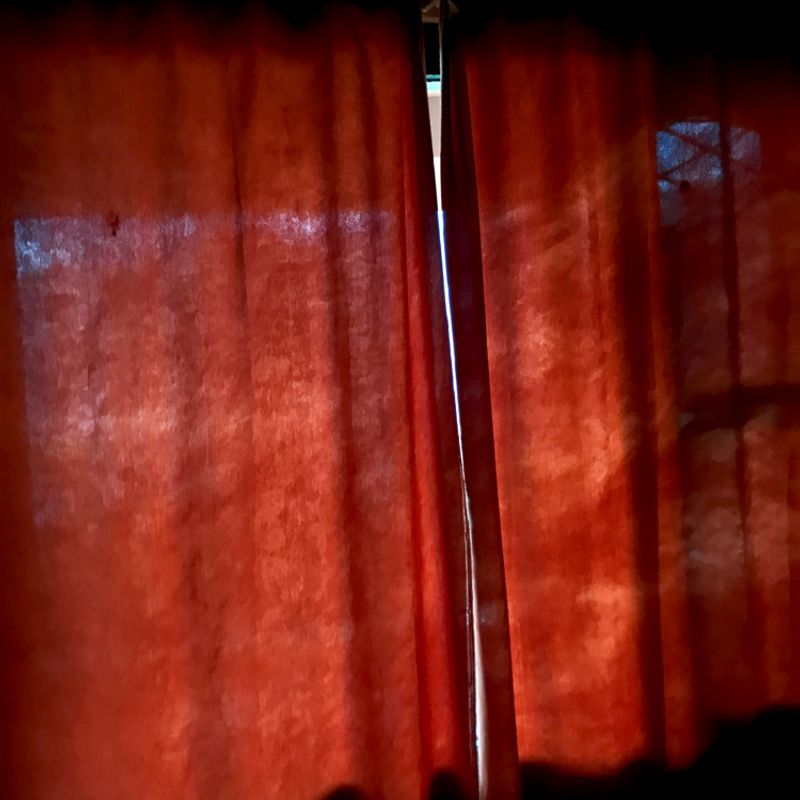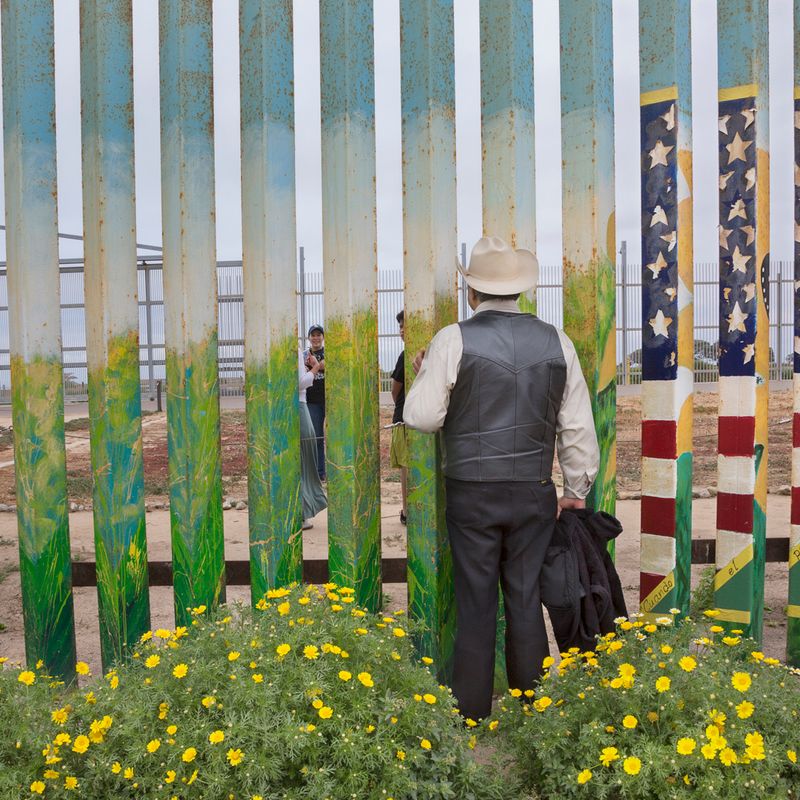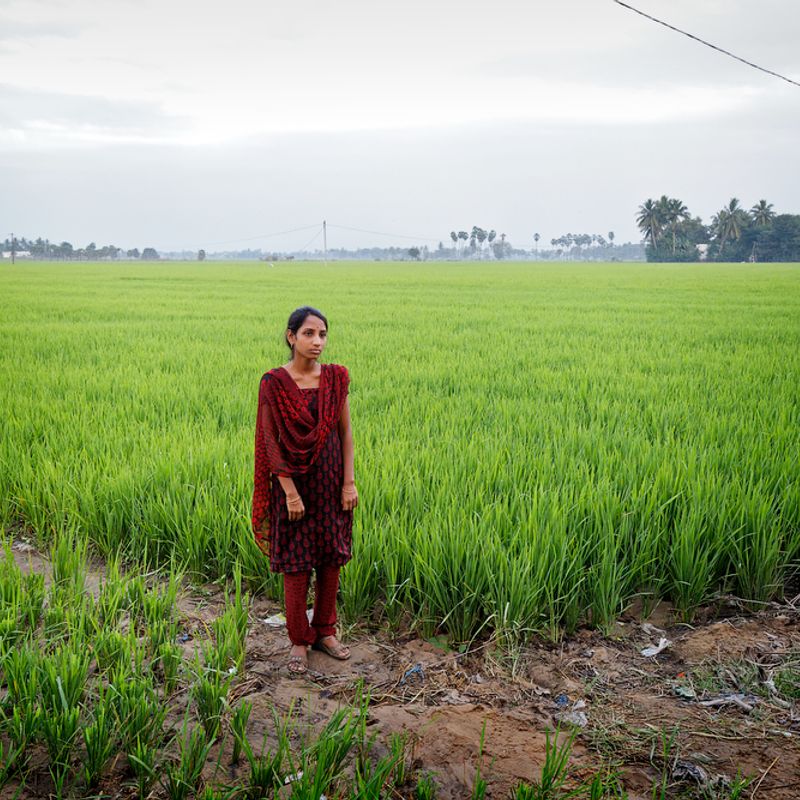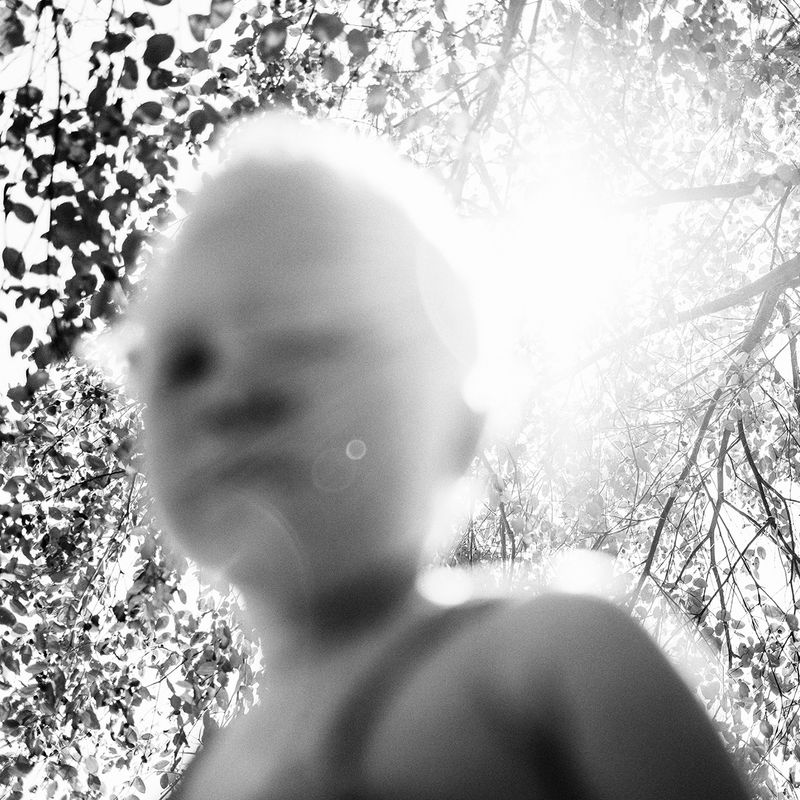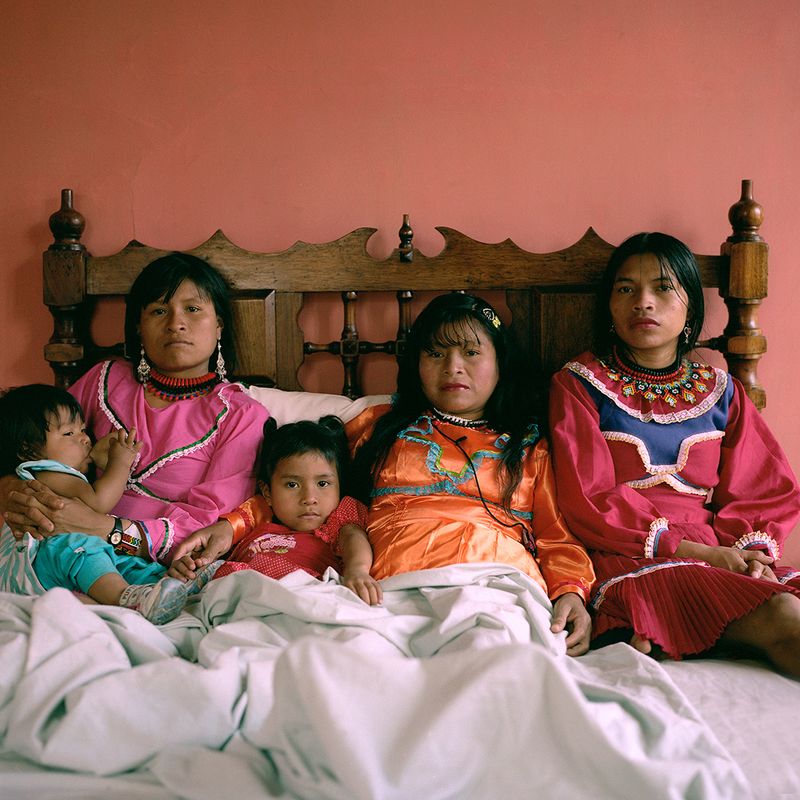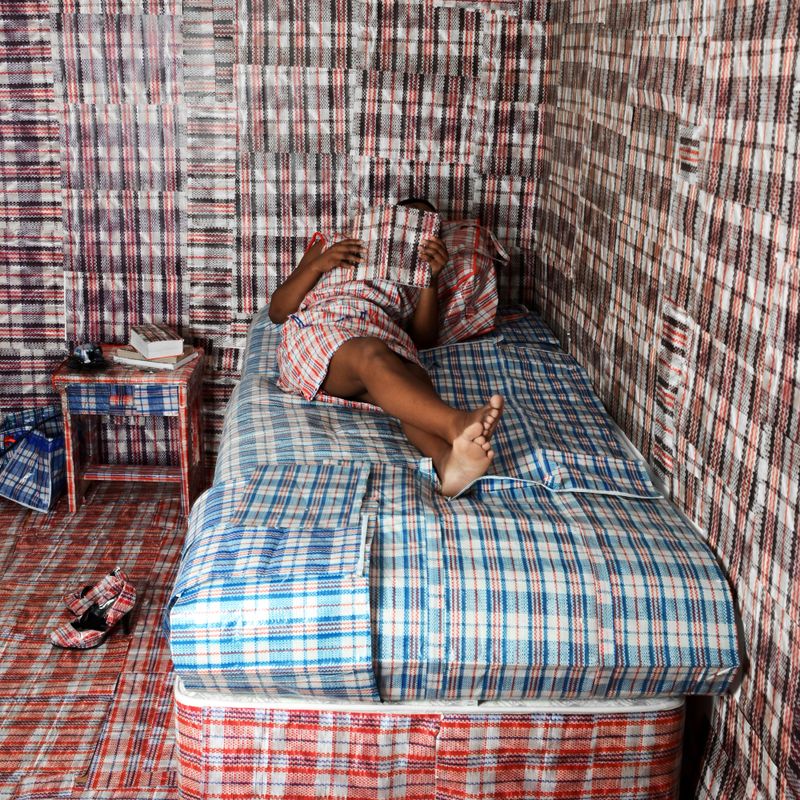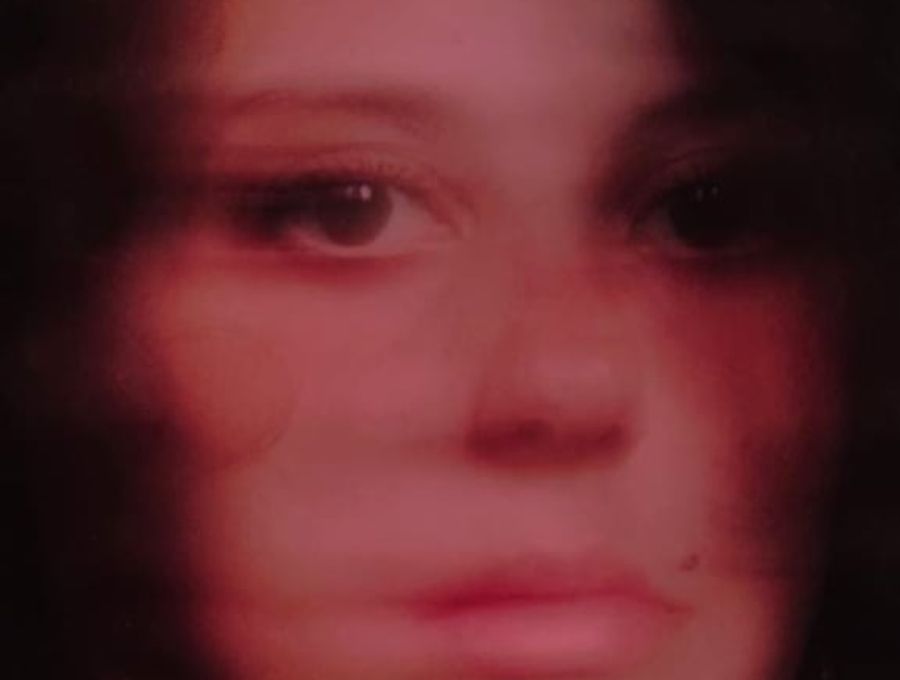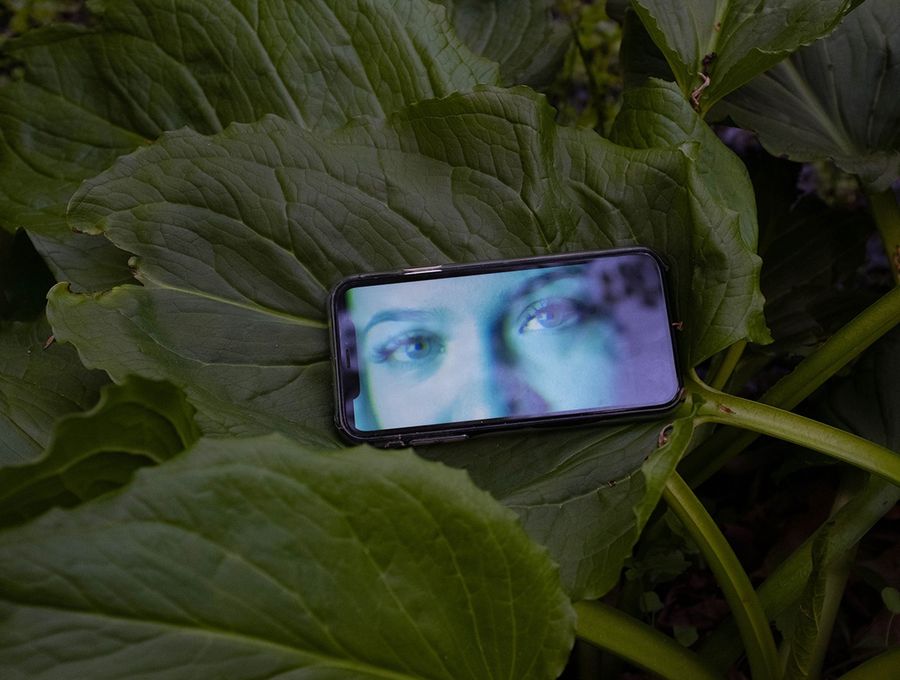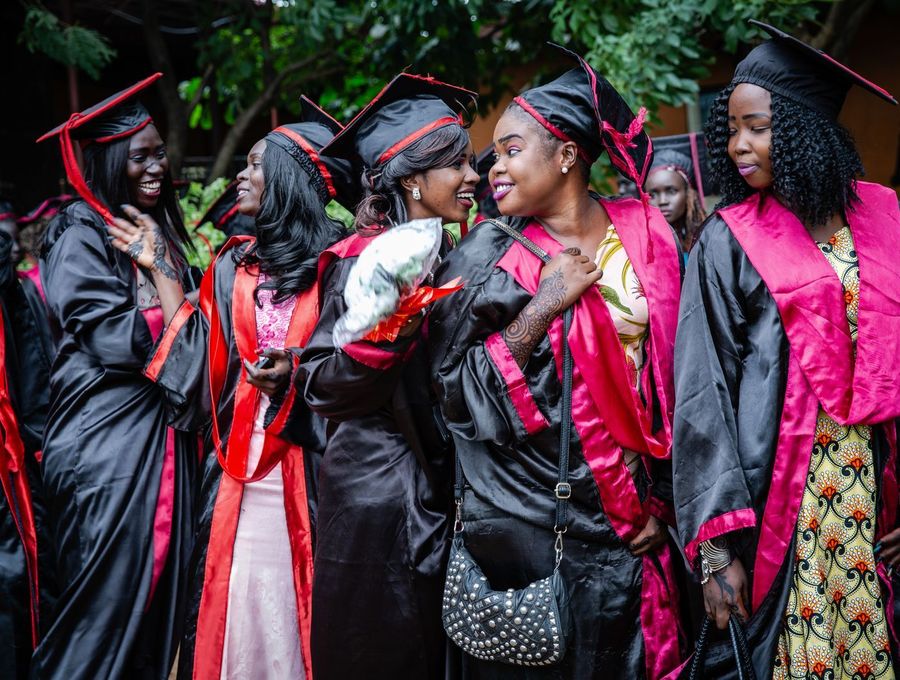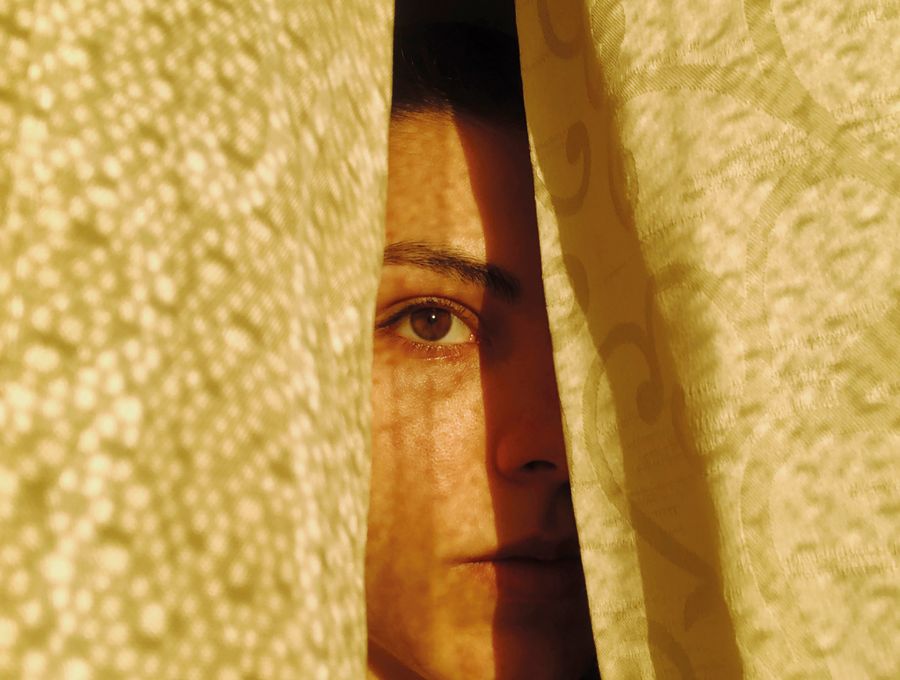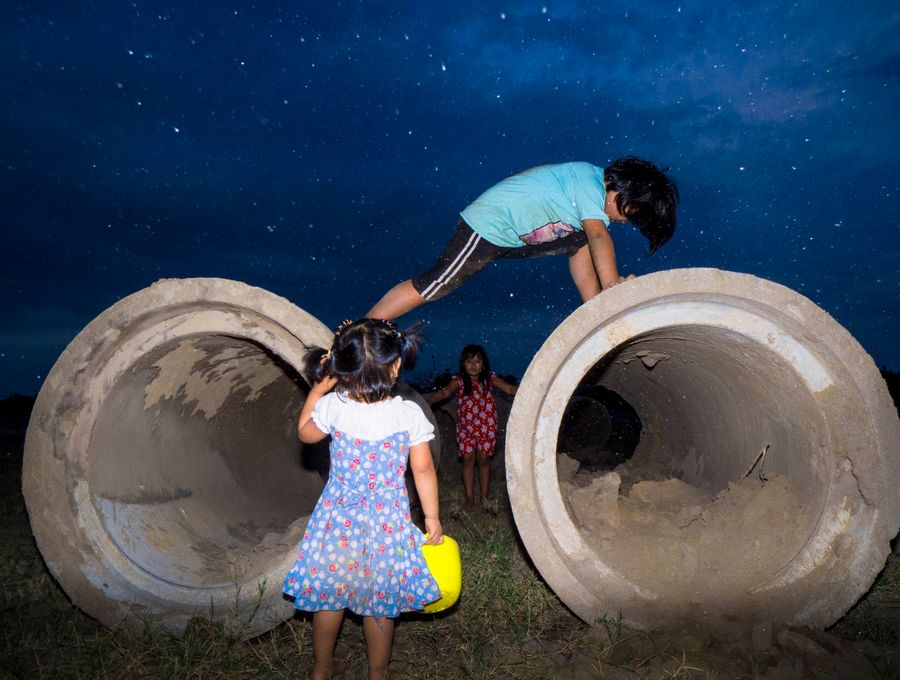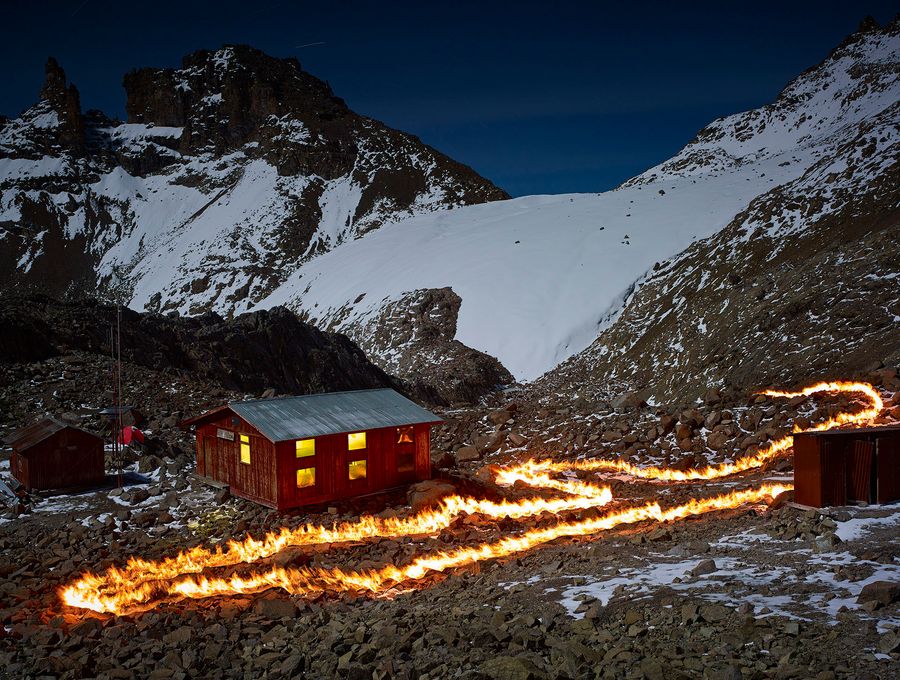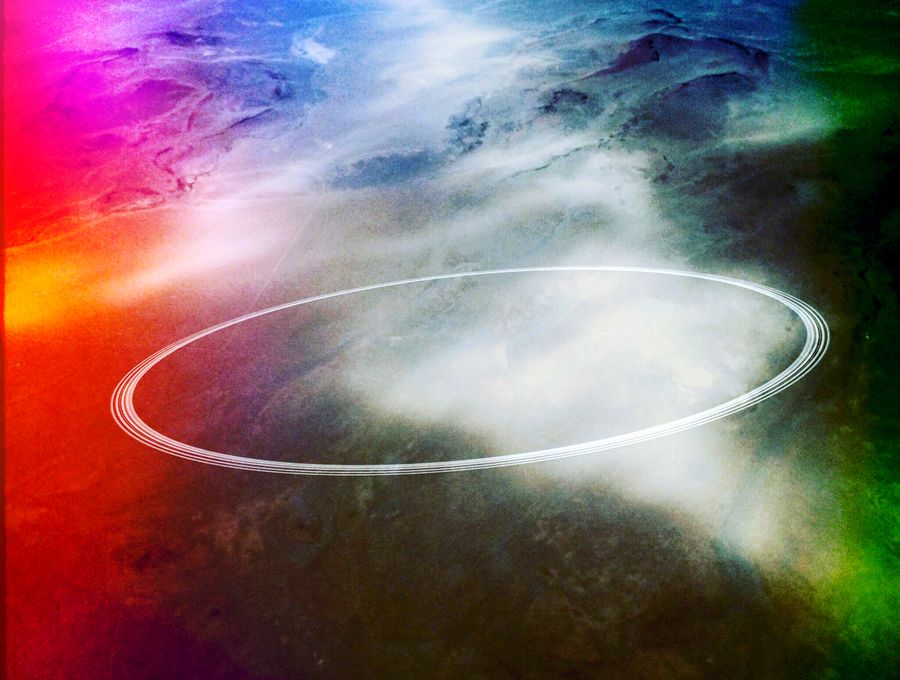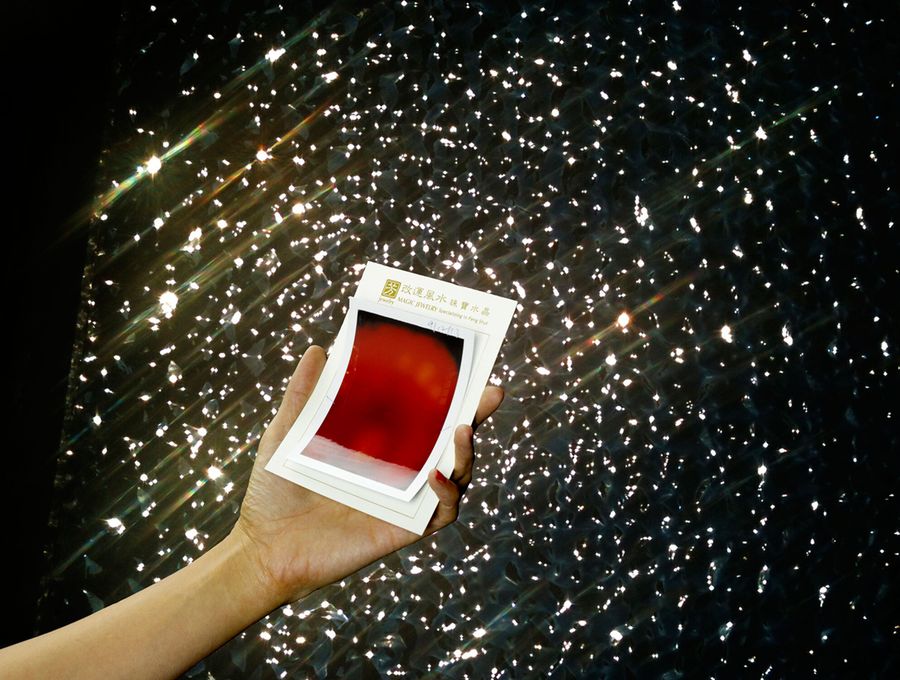- Curated by Maria Teresa Salvati
- Opening 14 November 2017
- Closed 22 January 2018
“People everywhere - under very different conditions - are asking themselves: where are we? The question is historical not geographical. What are we living through? Where are we being taken? What have we lost? How to continue without a plausible vision of the future? Why have we lost any view of what is beyond a lifetime? The well-heeled experts answer: Globalisation. Postmodernism. Communications Revolution. Economic Liberalism. The terms are tautological and evasive. To the anguished question of Where are we? The experts murmur: Nowhere!” (John Berger, 2005)
More raised walls and fences; an increased fear of what’s considered different; a loss of identity on a political, as well as on a personal and more private dimension; the growth of right wing fringes in many parts of the world, screaming racist slogans; migrants seen as “numbers” capable of stealing work, women, and lands; diseases affecting the poor, though intrinsically related to mass consumerism; increased violence and gender inequality; media (and social media) over stimulation leading to fear of missing out, putting many in the line of mental stress, alienation and loneliness.
It’s difficult to even try to come up with answers to the above issues and questions. What, though, if we reflect on the idea that, despite everything, we are all humans? What if we start considering that anthropologically we are born the same and, in recognising this, be more empathetic towards the “different” and the sorrow of humanity? What if we start to see the unity of the unnecessary suffering taking place around the world?
Psychology studies have come to hand, in particular one conducted by Abraham Harold Maslow (American psychologist) who in 1943 formulated the hierarchy of needs: a motivational theory comprising a five tier model of human needs, often depicted as hierarchical levels within a pyramid. Maslow stated that people are motivated to achieve certain needs and that some needs take precedence over others. Our most basic need is for physical survival, and this will be the first thing that motivates our behaviour. Once that level is fulfilled, the next level up is what motivates us, and so on.
The pyramid of needs is composed as follows, from bottom to top: Biological and Physiological; Safety; Love and Belongingness; Esteem, which Maslow classified into two categories: esteem for oneself (dignity, achievement, mastery, independence), and the desire for reputation or respect from others; and Self-actualisation. Over the years, the Maslow hierarchy of needs has been criticised as being incorrect.
Ed Diener (American psychologist) argued that "although the most basic needs might get the most attention when you don't have them, you don't need to fulfil them in order to get benefits [from the others]." Even when we are hungry, for instance, we can be happy with friends. Diener says that the needs work independently. "We need them all."
As a consequence, changes to the original five-stage Maslow model were developed during the 1960's and 1970's. The list is now composed of eight stages that include: Cognitive needs, Aesthetic needs and Transcendence needs. Despite the correction, research conducted by Tay and Diener (2011) has led to the same conclusions that Maslow stated earlier: the view that universal human needs appear to exist regardless of cultural differences.
With the above premises, Slideluck Editorial launched the Born The Same idea, looking for stories that could trigger some thoughts. Ten photographers shed light on some universal needs through micro-stories, delivered through powerful visual narratives, and a personal and creative gaze.
Aware that this is not the necessary road to responding to “where we are”, if we feel, even just for a moment, emotionally or humanly connected to a father kept away from his family; to women claiming spiritual equality and social justice; to young albinos denied of their right to play freely in the streets; to a person feeling lonely, or a bunch of alienated crowd; to populations forced to leave their lands and unaccepted within their own culture; to people looking for their identity and belongingness; to a young student having to refrain her dream because of family duties; well, if we are able to focus more on what makes us human and similar, rather than different to each other, maybe this could have an impact on us, on the way we relate with each of them, and how we perceive most of the contemporary global events.
Maria Teresa Salvati
Galleries
Photographers
Curators
Maria Teresa Salvati
Curator
(1976, Bari – Italy) Editor-in-Chief and founder of Slideluck Editorial: a selection of the best photographic works and multimedia presented during Slideluck events worldwide and of guests artists.
Maria Teresa conceived and curated the project BORN THE SAME: a selection of ten different works exploring sub-cultures and micro-stories working as reminder that we are all born the same, despite cultural, emotional and political conditions. The project was presented at Les Rencontres d’Arles 2017, during La Nuit de l’Année. The show, composed by exclusive multimedia is now touring globally in cities like New York, Buenos Aires, Hong Kong, Milan, Derby, Bombay, Bari and more.
She co-edited and co-curated HUNGRY STILL: exhibition and publication produced and designed by Slideluck London, FORMAT Festival and QUAD, printed by AKINA Factory. The collective project showcases twenty-four of the best works that have contributed to the English platform, since its inception, with a selection of images combined with personal anecdotes and recipes.
She’s a personal branding consultant. She helps photographers to find their “spot of beauty” and vision, advises them on how to build their identity, and communicate via the most appropriate channels (i.e. social media). Now she teaches a course on Personal Branding for photographers in Bari at F.Project School of Photography and Cinematography; in Rome at Officine Fotografiche; and she’s guest lecturer at the London College of Communication (LCC).
She’s director of Slideluck Europe since 2012, and works as independent curator. Writer contributor for GUP Magazine: she interviews and selects portfolios of photographers, also presented at Slideluck events in Europe. She moved to Bari in 2013, after 7 years in Milan and 10 in London. For over 15 years, she’s worked as a creative strategist in advertising and communication agencies.
